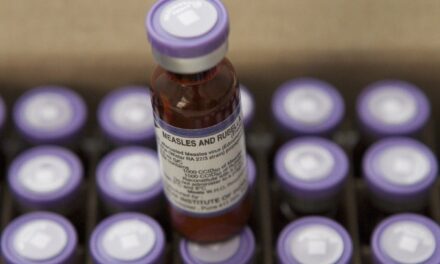In the late 1980s, a groundbreaking study published in the New England Journal of Medicine sparked a revolution in preventive medicine. It suggested that a simple, over-the-counter drug, aspirin, could significantly reduce the risk of heart attacks. For decades, millions of Americans followed suit, incorporating aspirin into their daily routine, often without a doctor’s recommendation.
However, recent years have witnessed a dramatic reversal in the perception of aspirin’s efficacy for primary prevention of cardiovascular events. According to Dr. John Wong, vice-chair of the US Preventive Services Task Force (USPSTF), the findings from studies such as ASCEND, ARRIVE, and ASPREE have challenged the once widely accepted notion of aspirin’s magical powers in preventing heart attacks.
The data from these studies revealed a marginal reduction in the risk of myocardial infarction, coupled with a significant increase in the risk of gastrointestinal and intracranial bleeding among those taking low-dose aspirin. This shift in understanding has prompted a reevaluation of aspirin’s role in preventive cardiology.
Dr. Muhammad Maqsood, a cardiology fellow at DeBakey Heart and Vascular Center in Houston, suggests that newer classes of drugs, particularly P2Y12 inhibitors like clopidogrel, could offer a safer alternative to aspirin. These drugs have demonstrated efficacy in reducing the risk of heart attacks and strokes in patients with existing cardiovascular disease, with a more favorable bleeding profile compared to aspirin.
However, the lack of clinical trials evaluating P2Y12 inhibitors for primary prevention underscores the need for further research in this area. While aspirin’s recommendation for primary prevention has been downgraded by organizations like the USPSTF and the American College of Cardiology, the decision to prescribe it remains individualized, taking into account various factors such as age, risk profile, and bleeding risk.
Dr. Douglas Lloyd-Jones, a practicing cardiologist, emphasizes the importance of personalized care and shared decision-making in determining the use of aspirin for primary prevention. He suggests considering factors such as coronary artery calcium scores and family history of heart attacks to guide clinical decisions.
In light of evolving recommendations, primary care providers are urged to focus on evidence-based interventions such as smoking cessation, hypertension screening, and behavioral interventions to reduce cardiovascular risk. Dr. Wong stresses the importance of engaging patients in discussions about heart health and encouraging lifestyle modifications to mitigate risk factors.
As the medical community continues to navigate the complex landscape of cardiovascular prevention, the conversation around aspirin’s role evolves, highlighting the need for individualized approaches and ongoing research to optimize patient care and outcomes.












